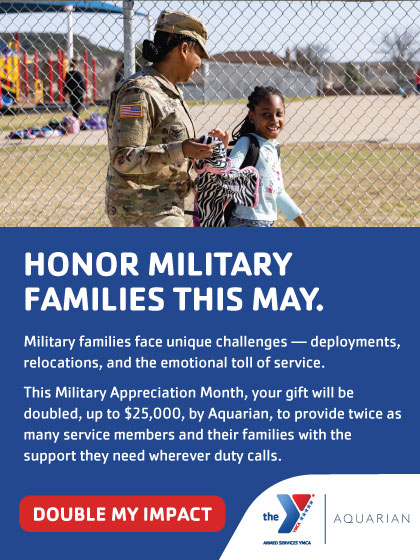What Military Deployment Means for Families
Written by Susannah Wruk
“It’s like losing a limb; you never realize how many things you rely on your spouse for until they aren’t there to help,” said a fellow military spouse prior to my husband’s first deployment. I didn’t realize just how accurate this would be.
During my husband’s first deployment, I struggled with a range of difficulties and tough situations. I missed him every day. I was faced with the tricky reality of solo parenting our toddler and realized just how exhausting it can be. I was lucky enough to be near family for support and not have to worry about my husband being somewhere dangerous, but many families are not as fortunate.
Deployment is unavoidably tough on families. Studies have shown that children of deployed service members are more at risk for behavioral problems and poorer academic performance — but, there is hope. All deployments eventually come to an end. Here is some insight on what military deployment looks like for families and some tips on coping with deployment.
Let’s Face It, Deployment is Really Tough
There’s no other way to put it. Deployment is just flat out tough. Many families go through a grieving process when their service member first leaves. It’s hard for military spouses during deployment because they take on the roles of both parents and all of the responsibilities of running the household.
The “deployment curse” is a common joke among military spouses — anything that can go wrong will go wrong during a deployment. The brand new washing machine stops working, all of the light bulbs in the house seem to burn out at the same time, your child gets injured and needs stitches, the car breaks down, etc. For whatever reason, these types of mishaps seem to happen more frequently during deployment. It can be really overwhelming.
How to Explain Deployment to a Child
Kids have a tough time coping with deployment. Some children may struggle with understanding why a parent left. Feelings of fear and abandonment are common. Children may act out more or struggle with behavioral issues that they didn’t have a problem with prior to a parent deploying. Some things that you can do to help children cope with deployment are:
Talk at Their Level
It’s important to take into account your child’s intellectual and emotional development when deciding how to talk about deployment. For very young children, simple explanations are best. Sometimes reading books about deployment can help them to better understand the situation. For older children, have honest and open conversations about why a parent had to leave, where they are going (as much as is safe to share without violating Operations Security), and reassure them that their parent will be back and will stay in contact as frequently as they can.
Find What Brings Them Comfort
When preparing for deployment with younger children, consider getting a “daddy doll” or “deployment quilt” that have printed pictures of their loved one. These mementos often help children feel safe and secure, no matter how far their deployed parent. For older children and teens, setting up a “deployment wall” may help them feel more “in the know” and connected. Typically, these walls are set up somewhere in the home and feature a map with pins to show where their deployed parent is, clocks to help visualize the time difference, pictures and letters from the service member, and more!
Countdown to Homecoming
Kids of all ages get excited for homecoming countdowns. Some families use a calendar to cross off the days or have a white board with a countdown of how many days left. Others use a jar filled with pieces of candy signifying the number of days until homecoming or a paper chain where the children can tear off a link each day. Any of these methods help children see progress toward reuniting with a parent — serving as unique reminders that deployment is only temporary.
”The New Normal”
Eventually, during any military deployment, the family will find a “new normal.” Routines will be re-established. As crazy as the early days of deployment can be, things soon settle and families learn to find new ways to connect. Of course, missing their deployed service member will never subside, but they will find strategies to cope with deployment.
Surviving and Thriving
Remember, struggling with deployment is normal and asking for help is okay! The Armed Services YMCA (ASYMCA) offers many resources and programs to help families of deployed service members. Support groups, childcare, counseling and more are frequently available at little to no cost for military families.
As a non-profit organization, the ASYMCA depends on generous donations to continue its mission. Your gift today will support service members and military families throughout the USA and around the world!
Donate Today


